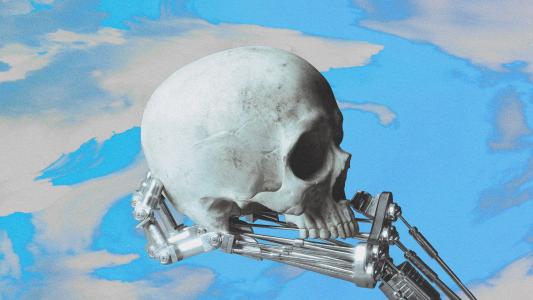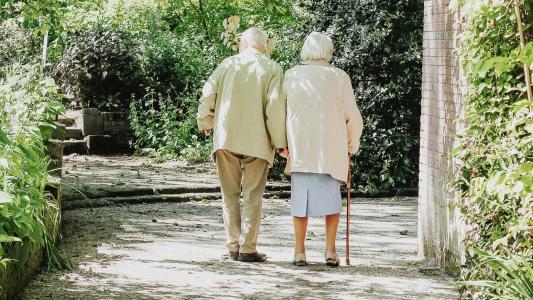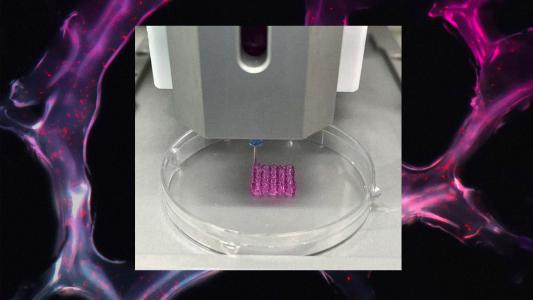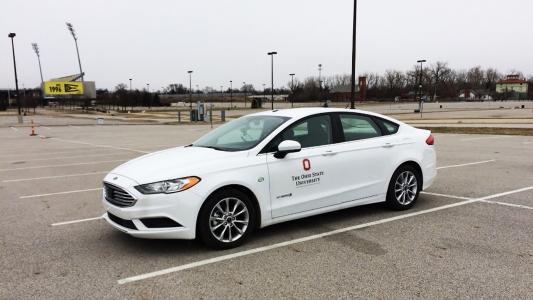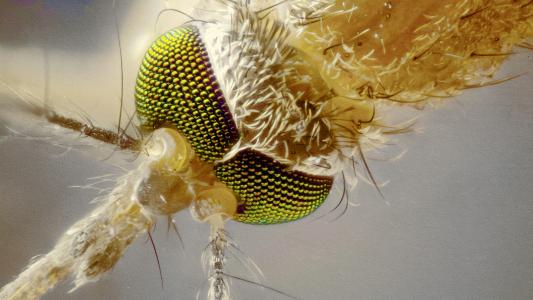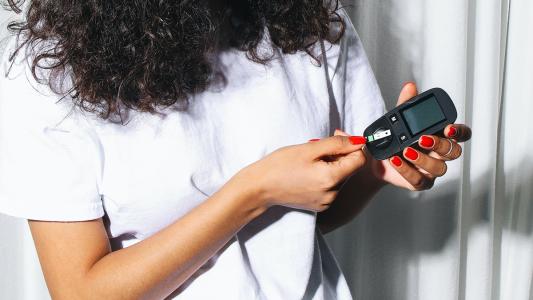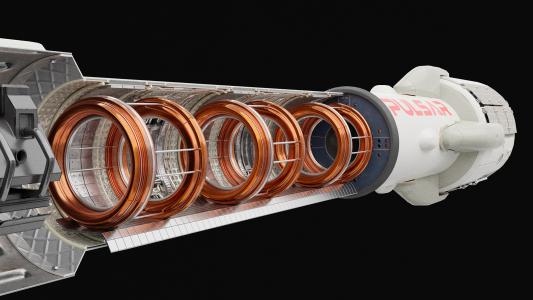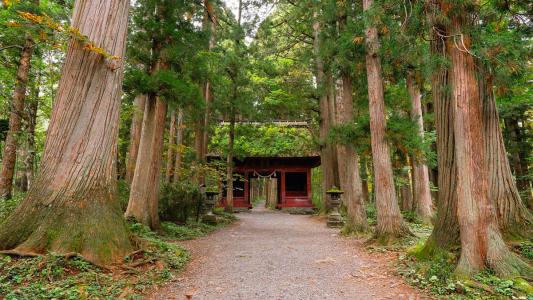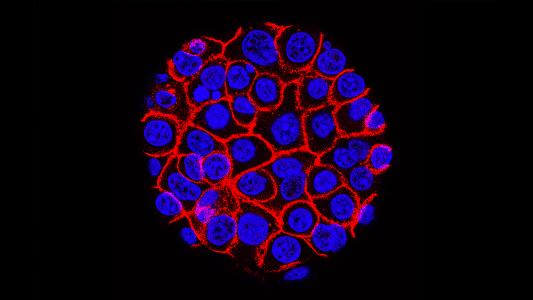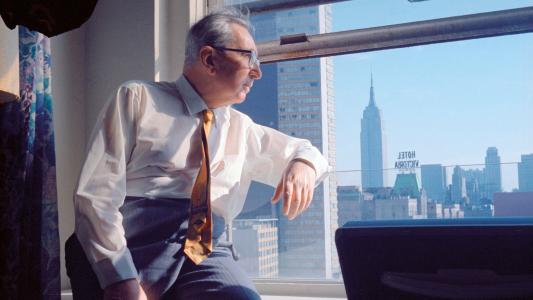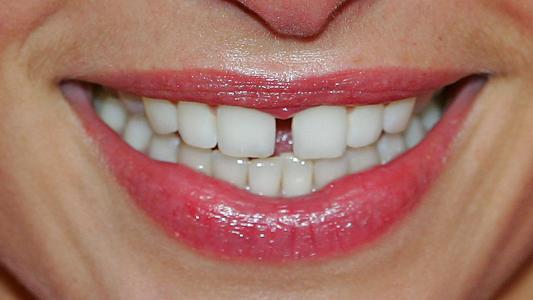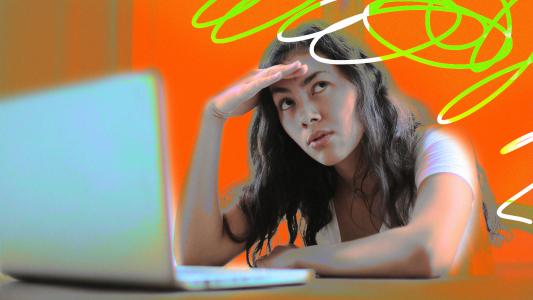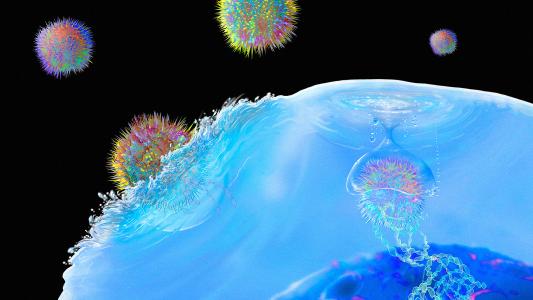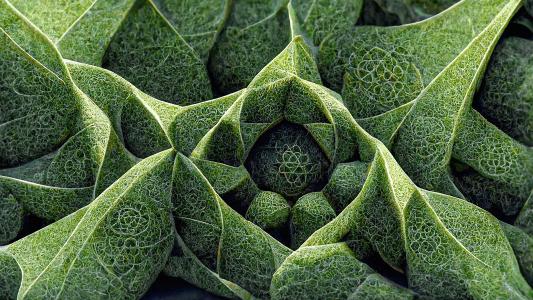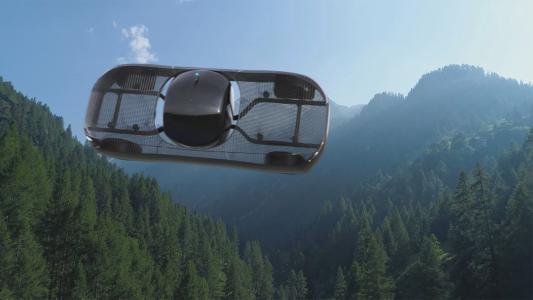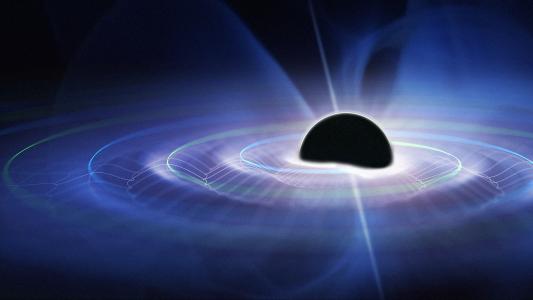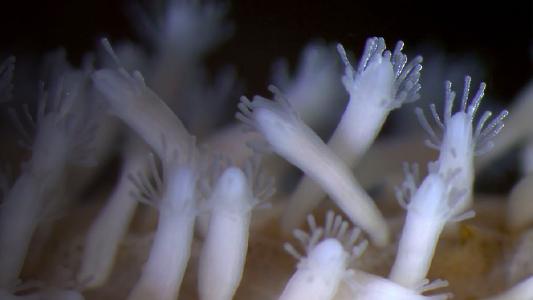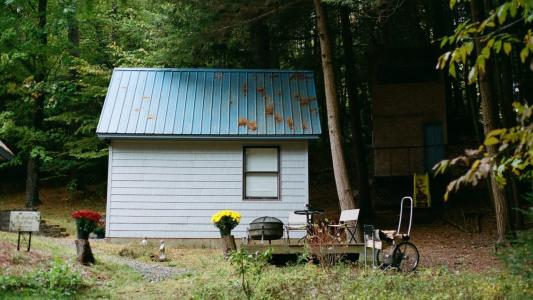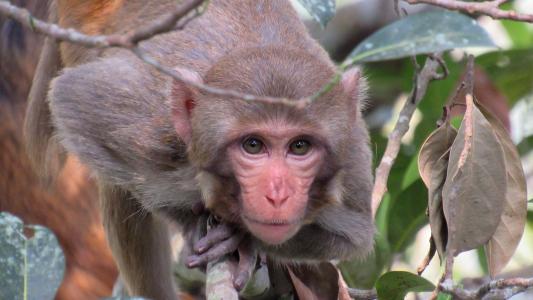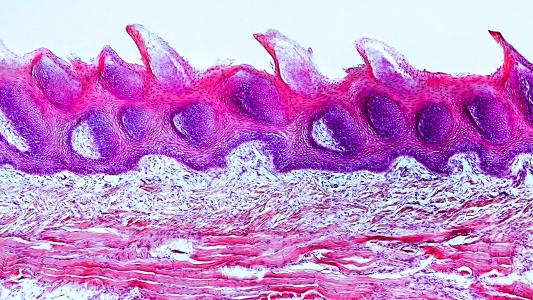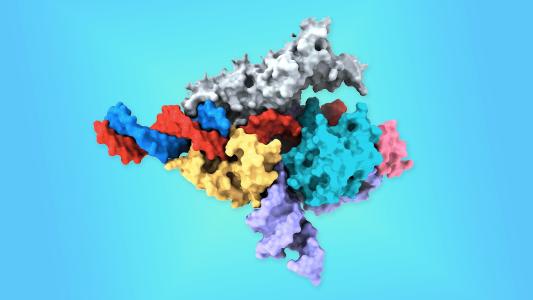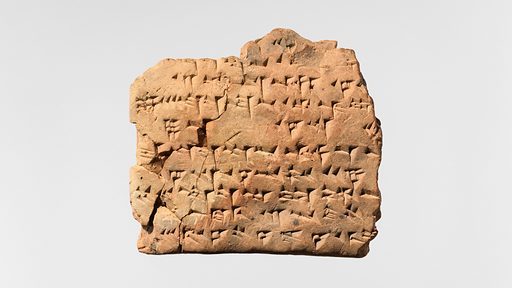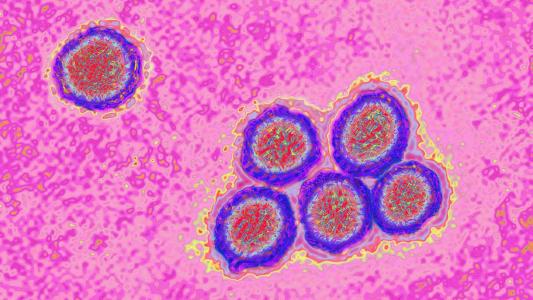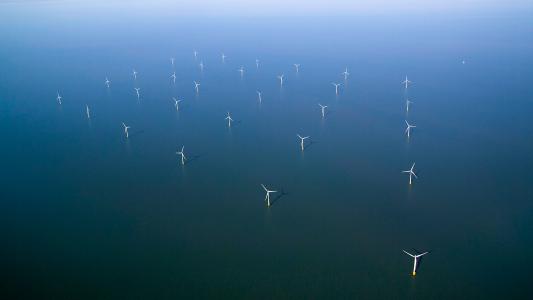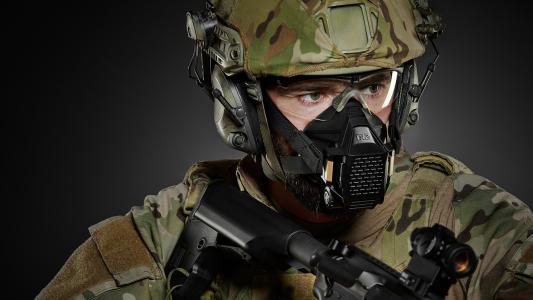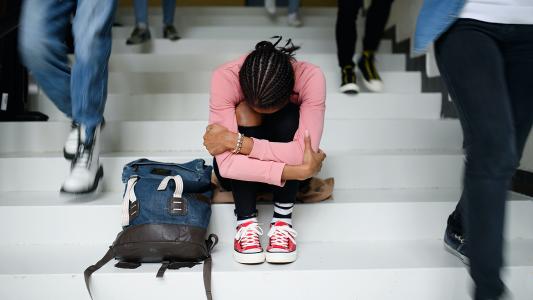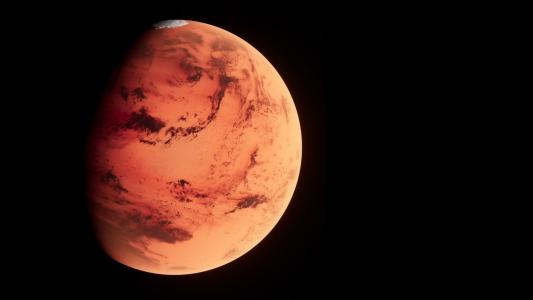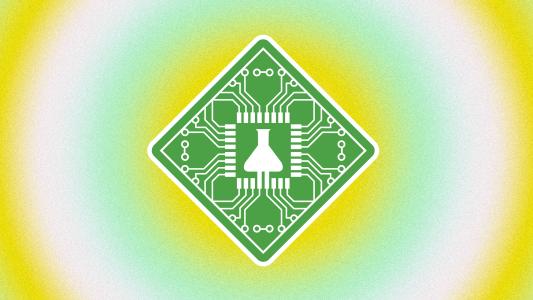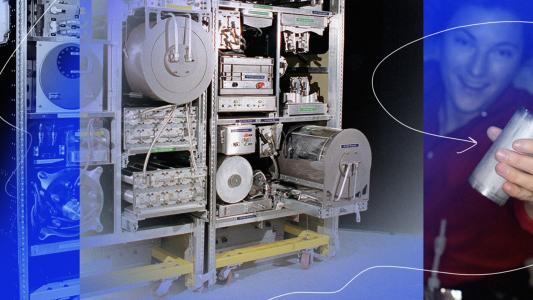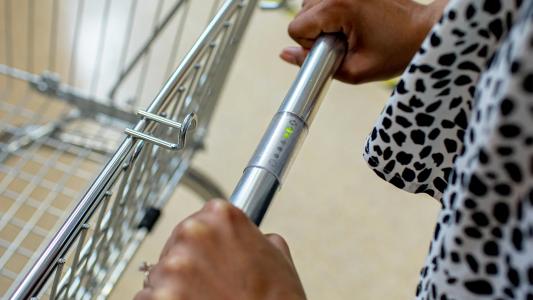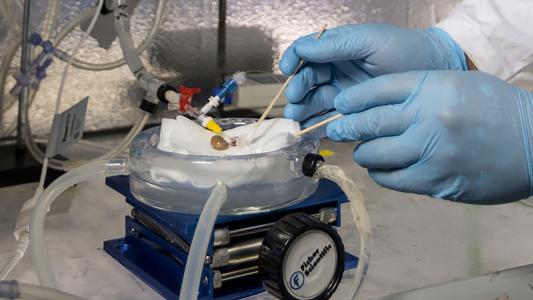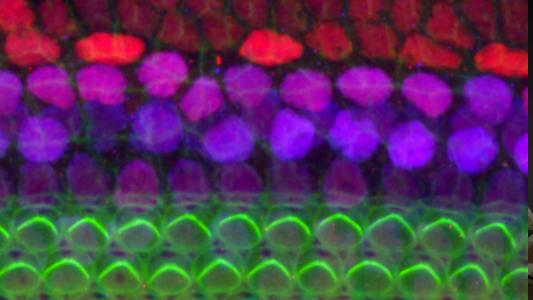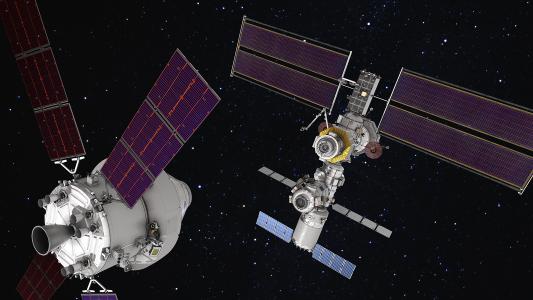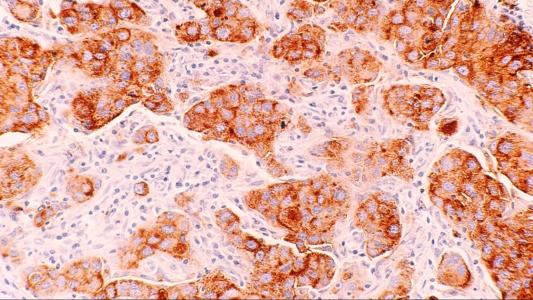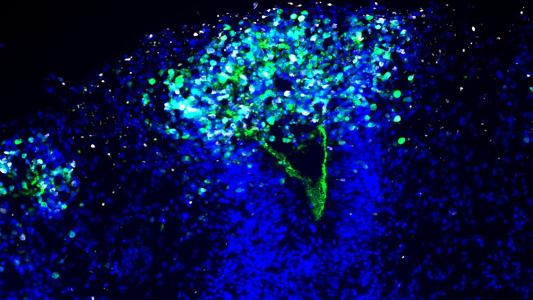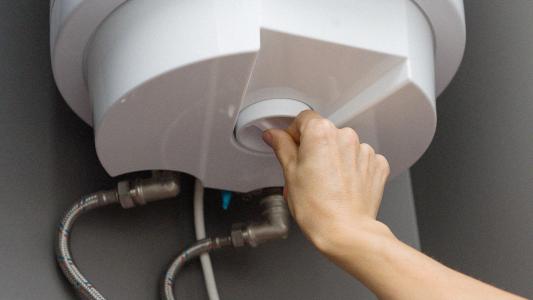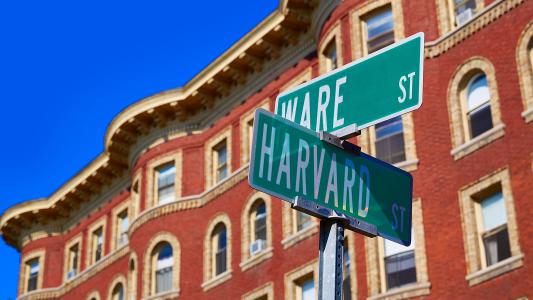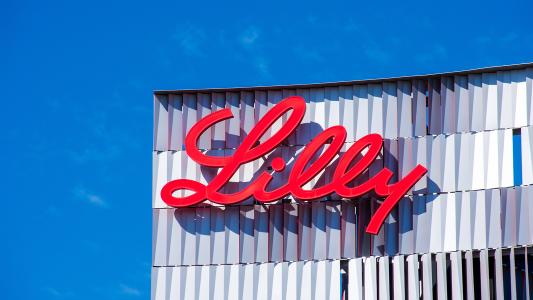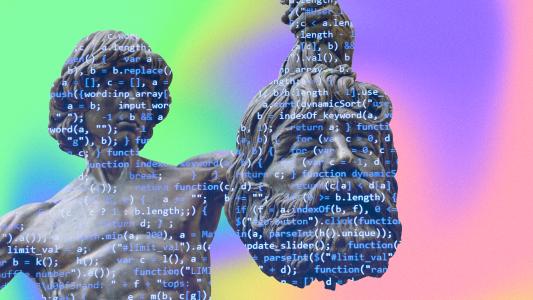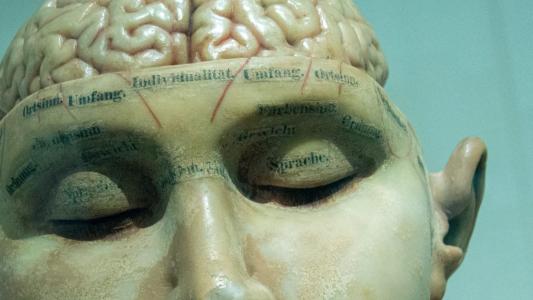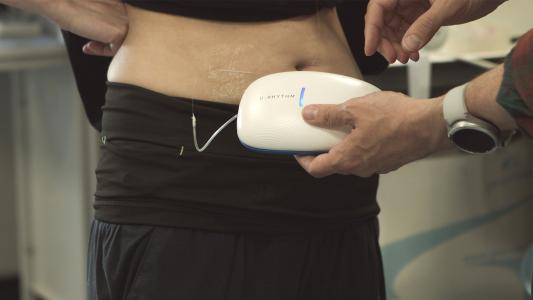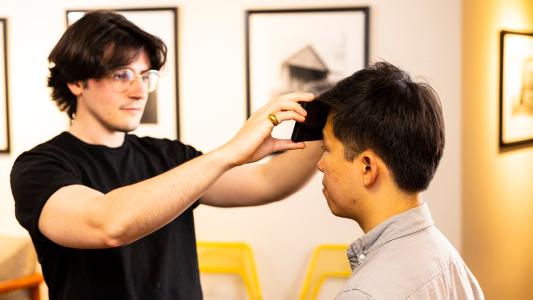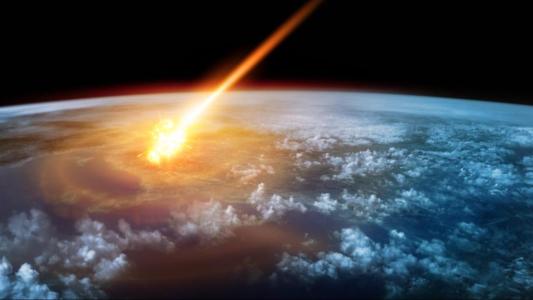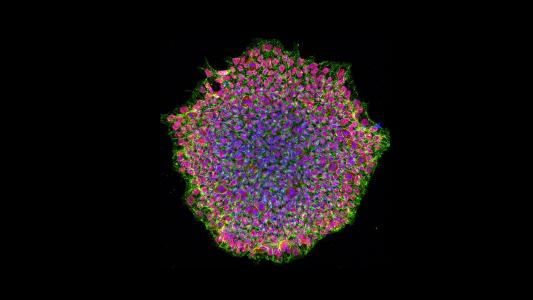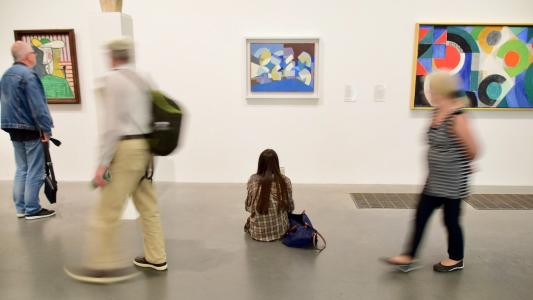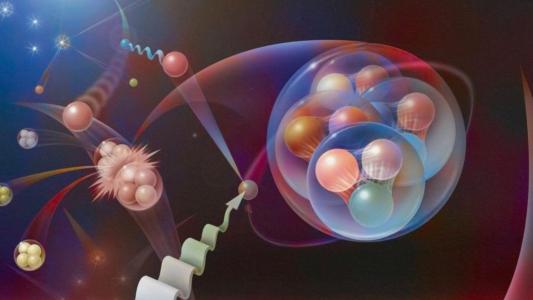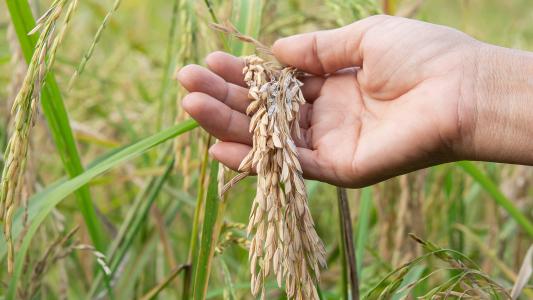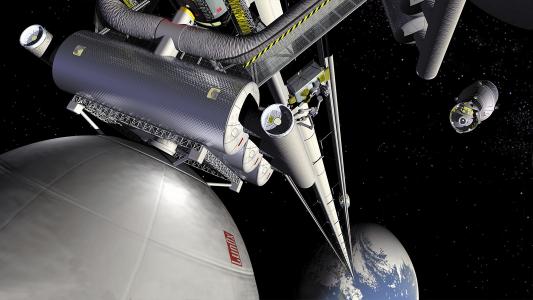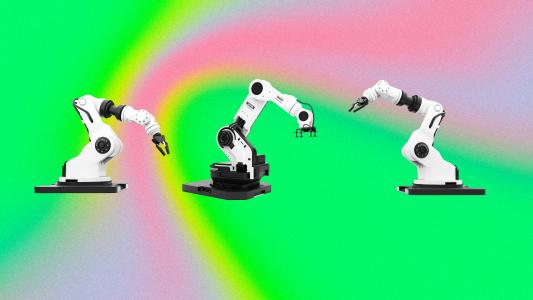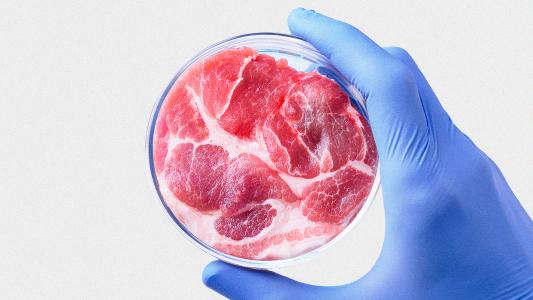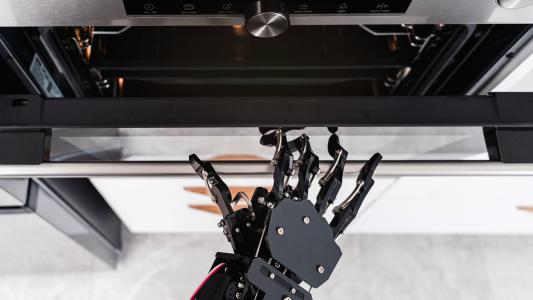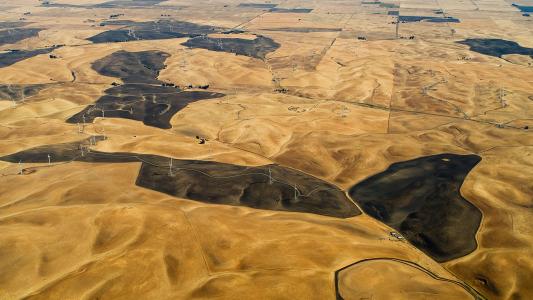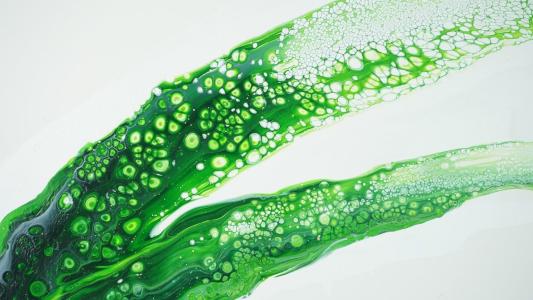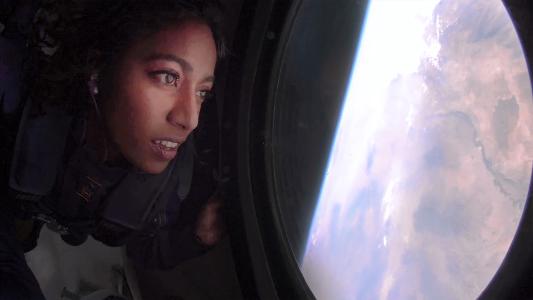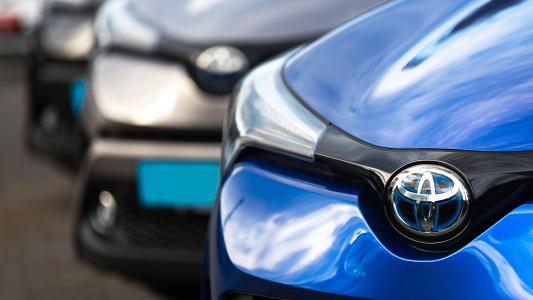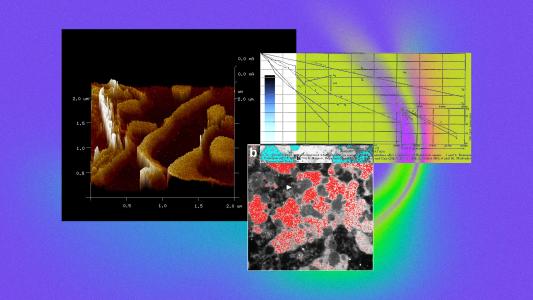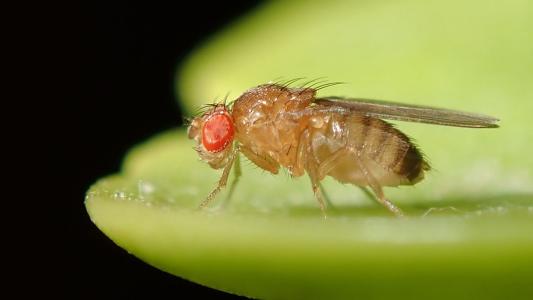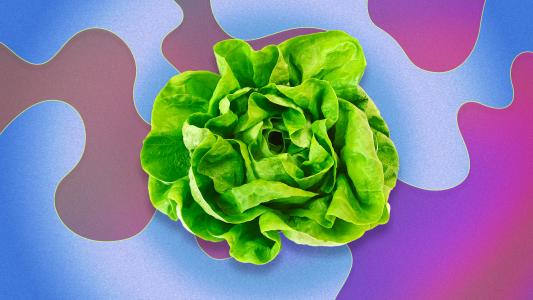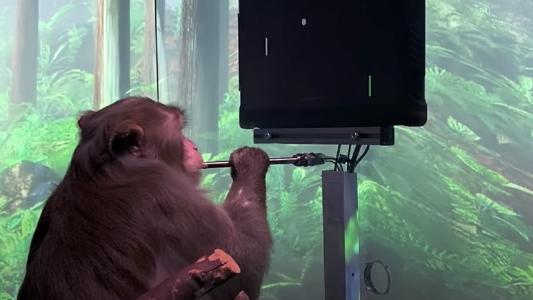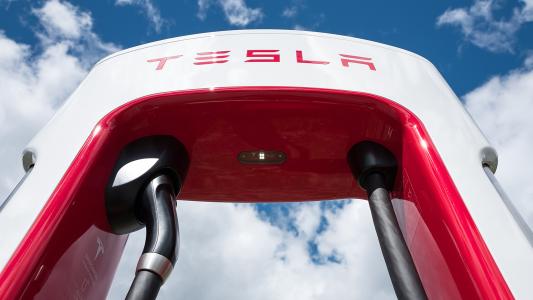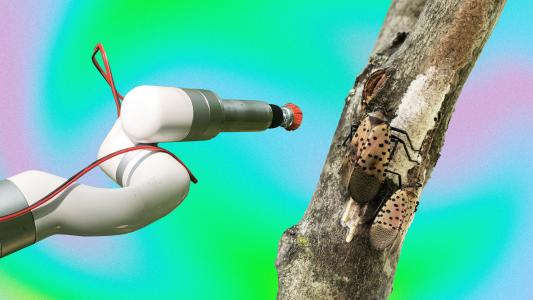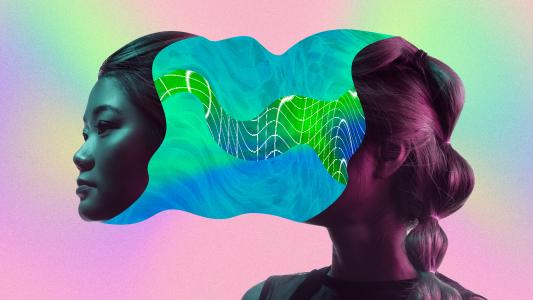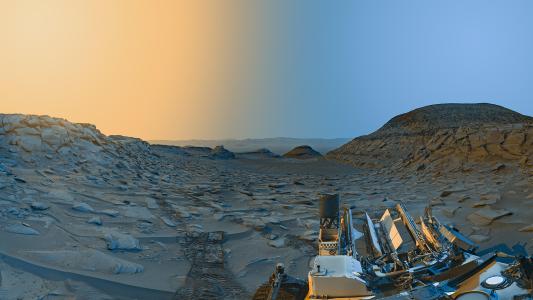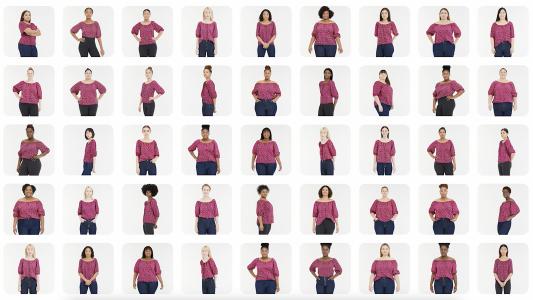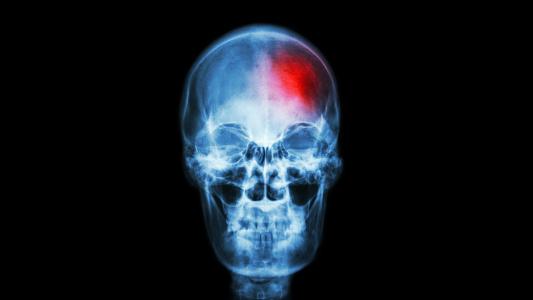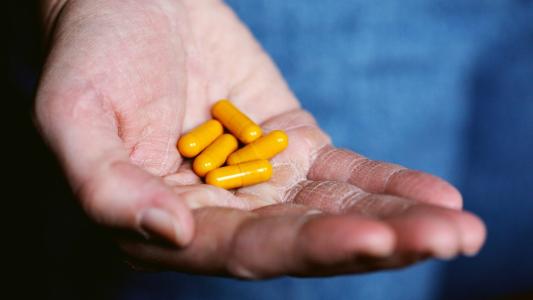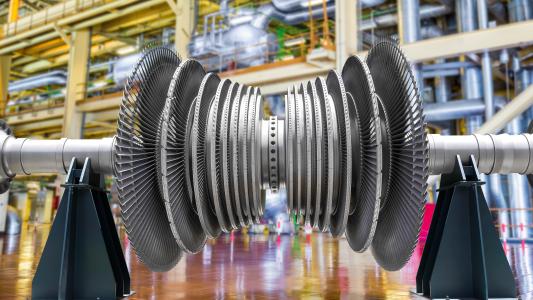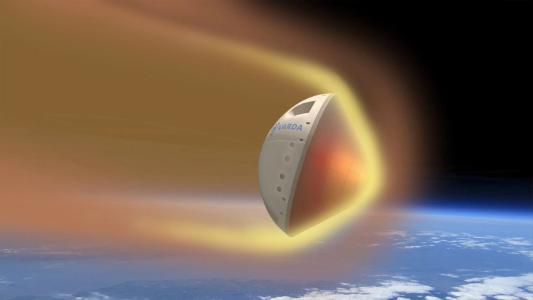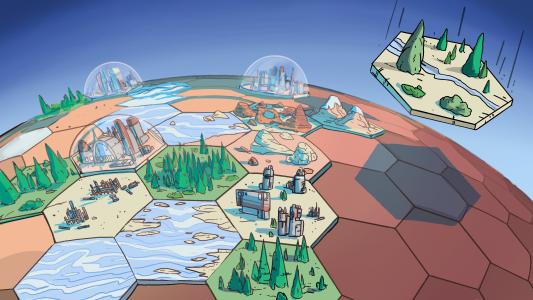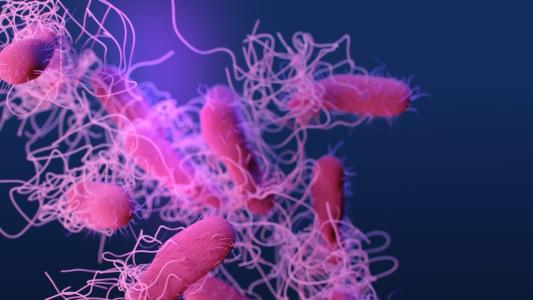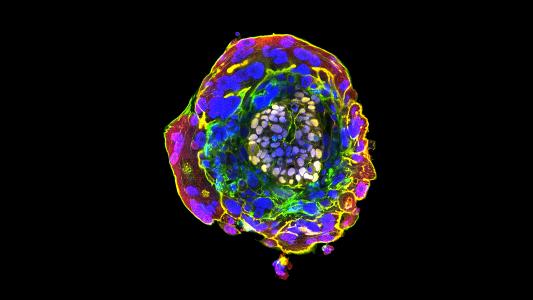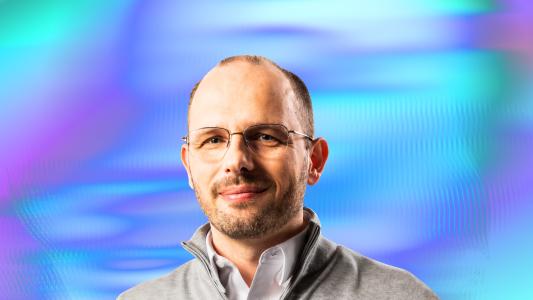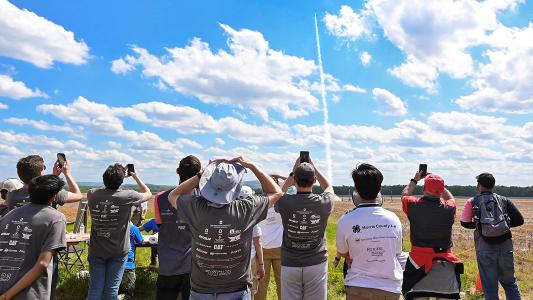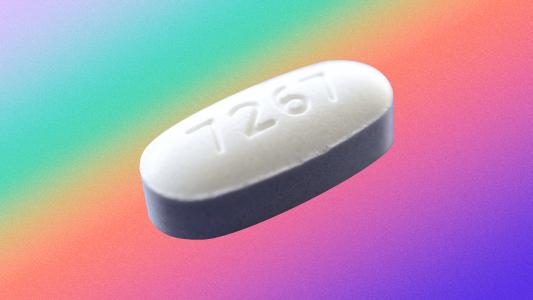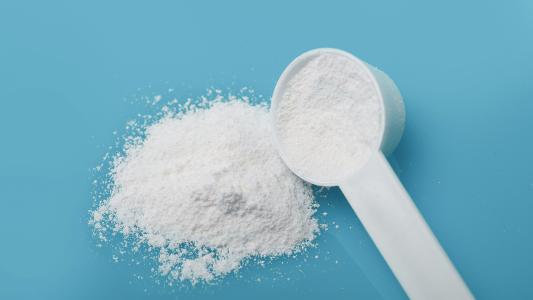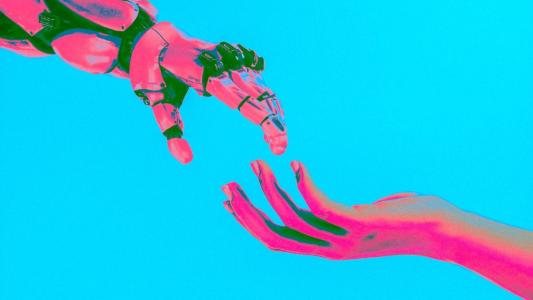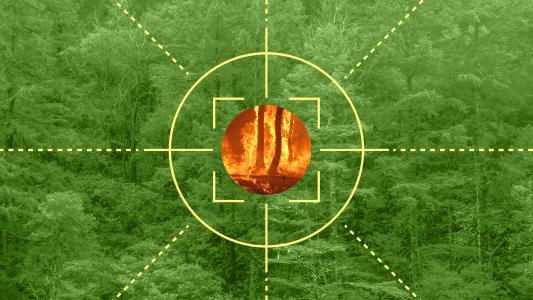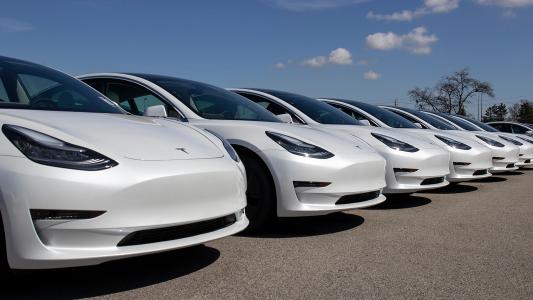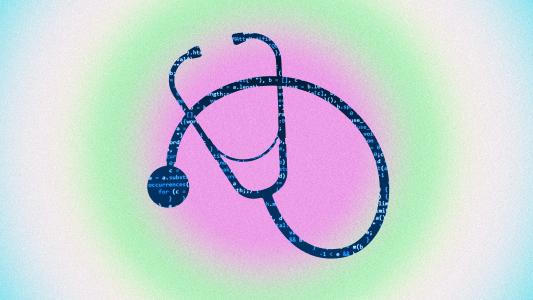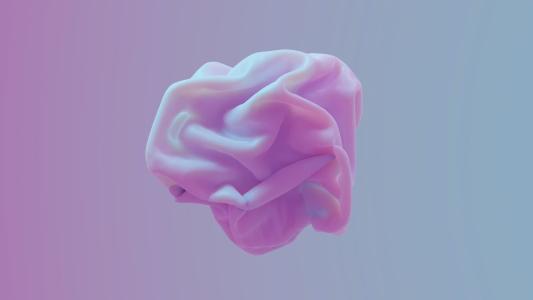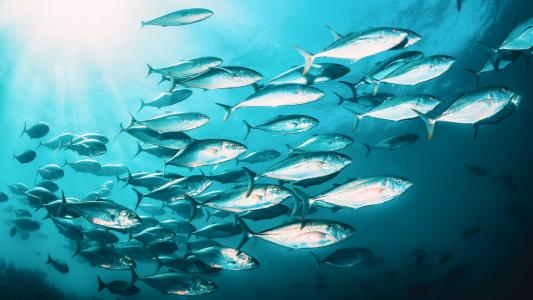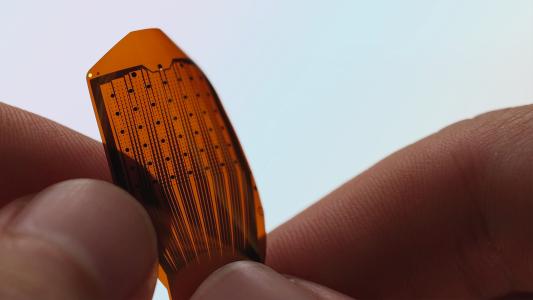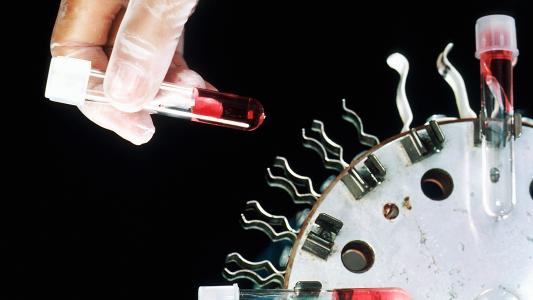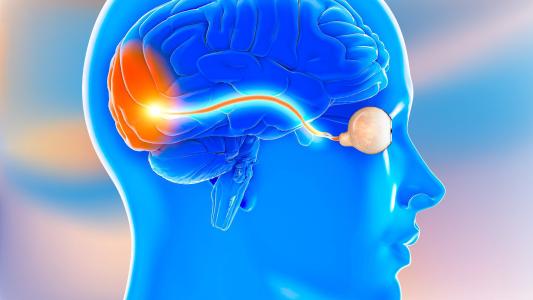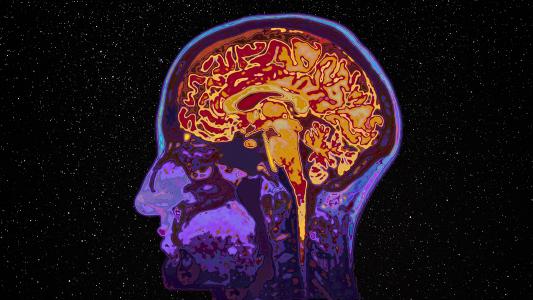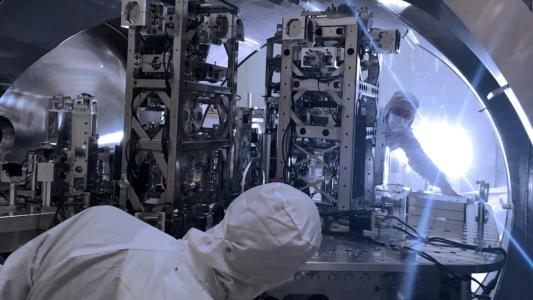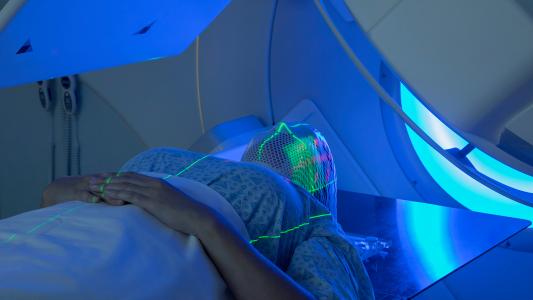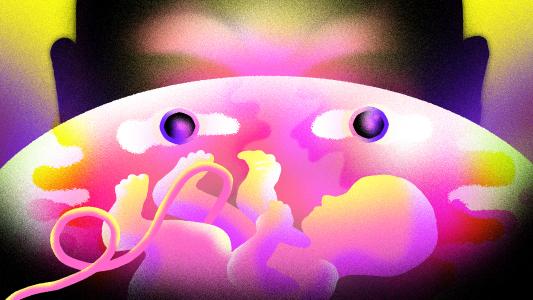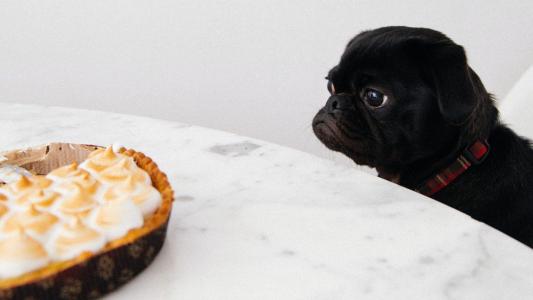Will AI kill humanity by 2100? “Superforecasters” and experts disagree on the odds
AI was the most divisive topic in a recent predictions tournament.
Aging is complicated – a biologist explains why no two people or cells age the same way
While some people may be older in chronological age, their biological age might be much younger. A biologist explains why.
Natural killer cells now have a better shot at destroying cancer
A 3D-printing-based approach could make immunotherapies based on natural killer (NK) cells better equipped to destroy cancer.
Neuroscience shows that speed reading is bullshit
Speed reading programs claim to teach students how to read more quickly without reducing comprehension. Research shows that they don't work.
VR for self-driving cars makes training safer, more efficient
A system that acts like a virtual reality headset for self-driving cars makes training the vehicles safer and more efficient.
Not all repellents are equal – here’s how to avoid mosquito bites this summer
Researchers studied different types of mosquito repellents and their efficacy for over a decade. Here's what they found.
A functional cure for brittle diabetes is now available in the US
Islet transplantation, a procedure shown to functionally cure some people with hard-to-control brittle diabetes, has been approved in the US.
What are “meta-skills” and how can they supercharge your life?
There are many meta-skills out there, but feeling, seeing, dreaming, making, and learning are likely the most important in the modern world.
A fusion rocket designed to travel 500,000 mph is under construction
British startup Puslar Fusion is developing a fusion rocket it says will travel 500,000 mph, expanding our reach throughout the solar system.
World’s oldest trees reveal the largest solar storm in history
One of the greatest threats to all our infrastructure is a solar storm, which has the potential to cause a multi-trillion dollar disaster.
New AI predicts who is most at risk of pancreatic cancer
An AI that identifies patients most at risk of pancreatic cancer could lead to earlier diagnosis of the deadly disease.
Viktor Frankl: The doctor who prescribed the meaning of life to his patients
Not having a meaningful life can be dreadful, and one psychologist thought it was the root of many neuroses. His ideas became Logotherapy.
Drug to grow new teeth heads to human trials
A drug that causes animals to grow new teeth could one day allow us to regenerate teeth lost to injury, disease, or old age.
If you have a complex project, follow “Gall’s law” — or it will fail
Success can be based on the fundamental observation that working complex systems arise from working simple systems.
MIT’s vaccine-enhanced CAR-T cell therapy destroys solid tumors
Adding a cancer vaccine to CAR-T cell therapy, a revolutionary treatment for blood cancers, boosts its efficacy against solid tumors.
Quantum biology: Your nose and house plants are experts at particle physics
Quantum processes, normally associated with the very small or very cold, have been found to occur in biological systems. This was unexpected.
The US just certified its first fully electric flying car
Alef Aeronautics' Armada Model Zero is the first fully electric flying car to secure a certificate of airworthiness from the FAA.
Astronomers use dead stars to measure gravitational waves produced by ancient black holes
As research challenges theories of how galaxies evolved, studying the era after the Big Bang using gravitational waves could be invaluable.
“Zombie” cells are the key to a tiny sea creature’s full-body regeneration
A tiny sea creature’s regenerative abilities add to the growing evidence that senescent cells aren’t always detrimental.
How building more backyard homes, granny flats, and in-law suites can help alleviate the housing crisis
Accessory dwelling units, or ADUs, are sometimes called “granny flats,” “backyard homes,” “in-law suites,” or “backyard cottages.”
One shot of the klotho protein boosted memory in old monkeys
A single shot of klotho, a protein linked to longevity, improved the working memory of older rhesus macaques.
Can we train our taste buds for health?
Reformulating foods tailored to the plasticity of our taste buds could be a practical and powerful tool to promote health.
First CRISPR-like system discovered in animals
A CRISPR-like gene-editing system found in animals and other complex organisms has been used to edit human cells for the first time.
New AI translates 5,000-year-old cuneiform tablets instantly
Translating an ancient language is a time-intensive process, and only a few hundred experts are qualified to perform it. Could AI do the job?
New meningitis vaccine is the first to cover new emerging strain
A new meningitis vaccine that protects against five bacterial strains outperformed an existing shot in a phase 3 trial.
The world needs hundreds of thousands more offshore wind turbines – where will they all go?
The huge expansion of offshore wind farms required to meet net zero targets may be achievable, if we can find the right place to put them.
Military vet’s lightweight mask is protecting soldiers from toxic fumes
A Canadian military veteran's innovative mask is protecting soldiers, police, and first responders from toxic exposure.
Newly identified type of depression affects 27% of patients
Stanford University researchers have identified a new, hard-to-treat type of depression characterized by problems with cognition.
How Mars lost its magnetic field — and then its oceans
Were it not for Earth's strong magnetic field, our planet would look just like Mars. And strong magnetic fields may be rare in the Universe.
AI-developed drug for deadly lung disease reaches phase 2 trials
AI-driven drug development has led to the launch of phase 2 trials of a drug to treat idiopathic pulmonary fibrosis (IPF).
NASA now recycles 98% of astronauts’ urine and sweat
A new water recycling system on the ISS can recover a record-breaking 98% of the water used by astronauts.
Sooner or later we all face death. Will a sense of meaning help us?
An awareness of our mortality can, paradoxically, move us to seek – and, if necessary, create – the meaning that we so desperately crave.
These shopping carts can tell if you have a common heart condition
A UK study found that ECG sensors placed in shopping cart handles can be used to detect atrial fibrillation (AFib).
Cryogenically frozen organs successfully transplanted into rats for the first time
Thanks to a new "nanowarming" technique, scientists have successfully transplanted cryogenically frozen organs into rats for the first time.
New AI-based theory explains your weird dreams
A new paper suggests that dreaming helps us generalize our experiences so that we can adapt to new circumstances.
“Backdoor” into the ear offers new hope for reversing deafness
A new study has unlocked a “backdoor” into the inner ear that could make administering gene therapies to restore hearing less risky.
NASA’s ChatGPT-like AI will let spaceships talk to astronauts
NASA is developing a ChatGPT-style interface for spacecraft, giving astronauts the ability to talk to the machines using natural language.
Certain diets can starve cancer cells
Low-calorie, intermittent-fasting, and ketogenic diets all can lower the amount of blood glucose available to fuel cancer cells.
A simple tweak could improve treatment of a deadly herpes brain infection
Anti-inflammatory drugs could potentially prevent herpes encephalitis from causing permanent brain damage.
We are spectacularly bad at predicting the future
Forecasters say AI will either enslave or liberate us, but the history of prediction suggests we have little way of knowing who will be correct.
Using electric water heaters to store energy could do the work of 2 million home batteries
As we work towards fully electric households, have we overlooked a key enabling technology, the humble electric water heater?
GPT AI will help teach the most popular course in the world
A Harvard professor is developing a GPT-based chatbot to help teach CS50, the most popular online course in the world.
New obesity drug cut weight by 58 pounds in trial, making it the most effective yet
Eli Lilly announced results from a phase 2 clinical trial of the newest entrant in the obesity treatment space.
Open-source “Davids” are taking on GPT-4 and other Goliaths
Powerful tech companies keep LLMs like GPT-4 shrouded in secrecy. But a new wave of open-source LLMs is giving the power of chatbots to the people.
Nasal drops might prevent PTSD
New research shows that nasal drops of neuropeptide Y triggers extinction of fear memories in an animal model of PTSD.
There’s now a wearable that can track your stress hormones
A wearable device called U-RHYTHM makes it easy for researchers to see how stress hormones ebb and flow over 24 hours.
AI predicts hit songs based on listeners’ heartbeats
A new AI predicts hit songs with 97% accuracy based on how a person’s heart beats while listening to the track.
Eastern philosophy says there is no “self.” Science agrees
Neuroscience aligns with Eastern philosophies such as Buddhism, that argue the self is an illusion, a byproduct of our thought processes.
Your smartphone may become a thermometer
Researchers at the University of Washington are developing an app that can turn the ubiquitous smartphone into an accurate thermometer.
A comet impact 13,000 years ago might have wiped out megafauna
Researchers note a "synchronicity" of geochemical signals suggesting that fragments of a comet struck Earth approximately 13,000 years ago.
One shot epilepsy treatment reduced seizures by 95% in first two patients
A stem cell-based treatment for epilepsy slashed the number of seizures experienced by two trial participants by 95%.
Viewing abstract art causes notable cognitive changes
Abstract art causes the viewer to place more psychological distance between themselves and the art than with more typical works.
Our language is inadequate to describe quantum reality
In the quantum world, the observer determines the physical nature of what is being observed. The notion of an objective reality is lost.
CRISPR’d plant is resistant to the “cancer of rice”
CRISPR’d plants resistant to the devastating fungal disease rice blast could help shore up the world’s food supply.
Space elevators are inching closer to reality
Tremendous progress has been made developing the materials necessary for a space elevator — but our need for one could soon disappear.
Google’s “RoboCat” will power new general purpose robots
In a bid to help develop general purpose robots, Google has created a robotic training, self-improving AI, “RoboCat.”
Lab-grown meat is finally approved in the US. Here’s how you can get some.
Two startups from California have received regulatory permission to begin selling lab-grown chicken in the US.
New navigation system works even when GPS fails
A new navigation system that tracks subatomic particles called “muons” could help us get around indoors, underground, and underwater.
California will begin backing intentional burns to control wildfire
After decades of suppression, California is now supporting prescribed burns and cultural burns.
Plants perform quantum mechanics feats that scientists can only do at ultra-cold temperatures
There may be a link between quantum mechanics and photosynthesis explaining why plants are so effective at converting light to food.
Virgin Galactic sets dates for first commercial space flights
Virgin Galactic is finally ready to begin commercial space flights, with tickets currently going for $450,000 each.
Toyota claims it will double the range of EVs in less than 3 years
Toyota’s been a bit behind the EV game, but claims game-changing batteries and new EV models are on the way.
“Spooky” quantum biology might cause your DNA to mutate
Research suggests that quantum effects could drive mutations in human DNA — the latest development in the emerging field of quantum biology.
Could switching off a neural “death response” slow aging?
A sensory mechanism that governs how quickly flies age may also have a corollary in people.
Insulin grown in lettuce can be taken orally
New synthetic insulin harvested from lettuce plants can be made cheaply, taken orally, and transported at room temperature.
Neuralink’s monkey can play Pong with its mind. Elon Musk says human trials are next.
If Neuralink’s monkey can play Pong with its mind, imagine what humans could do with the same technology in just a few years.
Tesla Superchargers will soon work with Ford and GM EVs
Ford and GM vehicles will be able to use the 12,000 Superchargers in early 2024, helping potentially set a new charging standard.
Farmers can fight invasive insects with AI and a robotic arm
As the invasive spotted lanternfly threatens to expand its range, Carnegie Mellon researchers are developing a robot to fight back.
Generate brilliant ideas by relaxing your cognitive filters
Theoretical physicist Leonard Mlodinow offers three strategies for relaxing your cognitive filters to give your brilliant ideas time to shine.
NASA shares colorful “postcard” of Mars’ surface
NASA has used photos taken by the Curiosity rover to create a gorgeous “postcard” of the Martian landscape.
Google unveils AI try-on feature for shopping
Google’s AI-powered virtual try-on feature lets shoppers see what an article of clothing would look like on a wide range of models.
Cancer med appears to prevent brain aneurysms
Japanese researchers have discovered that the cancer drug sunitinib can prevent the formation of brain aneurysms in mice.
“Nature’s own Ozempic” or berberine is all over social media
Does berberine work as well as Ozempic to help people lose weight? Social media seems to think so, but it's not likely.
3D-printed “superalloy” could make power plants more efficient
The material is both stronger and lighter than those used to make conventional turbines.
SpaceX successfully launches world’s first “space factory”
SpaceX has successfully deployed a “space factory” developed by startup Varda Space Industries to manufacture drugs in microgravity.
Can “terraforming” turn Mars or the moon into Earth 2.0?
Terraforming — the hypothetical process of making another place “Earth-like” — offers the hope of turning Mars or the moon into Earth 2.0.
How intestinal viruses could help you live to be 100
People who live past age 100 have a greater diversity of bacteriophages (that is, viruses that infect bacteria) in their intestines.
Model human embryo, created from stem cells, survives past two weeks
A model human embryo capable of developing past day 14 could revolutionize our understanding of human development.
GitHub CEO says Copilot will write 80% of code "sooner than later"
GitHub CEO Thomas Dohmke goes in depth to answer questions about how AI-powered development will change the future of innovation itself.
Students build reusable rocket, win $5,000 from NASA
The University of Alabama in Huntsville has won Student Launch 2023, NASA’s annual rocket-building competition.
Cheap drug appears to cut long COVID risk by 41% in small study
The diabetes drug metformin cut COVID-19 patients’ risk of later developing long COVID by 41% in a small study.
Taurine appears to reverse aging in animals. Can it do the same for us?
Animals given taurine lived longer, healthier lives, suggesting that the compound may also increase human longevity.
No, AI probably won’t kill us all – and there’s more to this fear campaign than meets the eye
A dose of scepticism is warranted when considering the AI doomsayer narrative — there are commercial incentives to manufacture fear of AI.
A West Texas lab’s mission to make cryptocurrency mining sustainable
In partnership with Coinbase
Bitcoin mining consumes a massive amount of energy. But, a smarter data center could make the process carbon negative.
AI is riding to the rescue on wildfires
AI-powered systems designed to detect, confirm, and detail wildfires at the earliest possible time may help firefighters tame infernos in the West.
Delta debuts spaces for passengers with wheelchairs
Passengers who use a power wheelchair have a uniquely arduous air travel experience. But a new seat looks to change that.
How years of fighting every wildfire helped fuel the Western megafires of today
The current approach to fire management poses unnecessarily high stakes for forests. Here's why fighting every fire does more harm than good.
Why EV growth in US could be much faster than expected
Consumer preferences and technological trends suggest that most buyers will be ready to choose an EV by 2030.
New “AI doctor” predicts risk of death with 85% accuracy
A new AI was able to make accurate predictions about patients’ risk of death, readmittance, and more by analyzing medical notes.
Have we got the brain all wrong? Study shows its shape is more important than its wiring
Neural activity may be more influenced by the shape of the brain – its grooves, contours, and folds – than by its complex interconnections.
How Fishcoin is using blockchain to combat seafood fraud
In partnership with Coinbase
Are you buying black-market fish? Fishcoin is waging a war against fraud.
Flexible brain implant tested in people for the first time
Startup Precision Neuroscience has tested its flexible, ultra-thin brain implants in people for the first time.
90% of patients respond to new blood cancer treatment in trial
Israeli researchers have developed a new form of CAR-T therapy effective against multiple myeloma, a plasma cell cancer.
Brain scans hint that lonely individuals process the world differently
A study finds that the brains of people who score higher in loneliness react in unique ways when viewing video content.
Visiting space likely won’t cause permanent brain damage, says NASA study
Spending months in space has a major impact on astronauts’ brains, but three years back on Earth appears to reverse the change.
How the world’s most sensitive yardstick reveals secrets of the universe
When two massive objects – like black holes or neutron stars – merge, they warp space and time. Here's the tool that measures the resulting waves.
Made-to-fade tattoo ink keeps cancer therapy from leaving a mark
Henry Ford Health researchers are using temporary tattoo ink to help radiation therapy patients for whom permanent tattoos may not be an option.
Scientists are growing animals in artificial wombs. Humans might be next.
Artificial wombs promise to give people a way to have biological children without putting their own health at risk.
The neurons that make us feel hangry
Researchers gave pinpointed a cluster of cells called AgRP neurons near the underside of the brain that may create “hangry” feelings.
